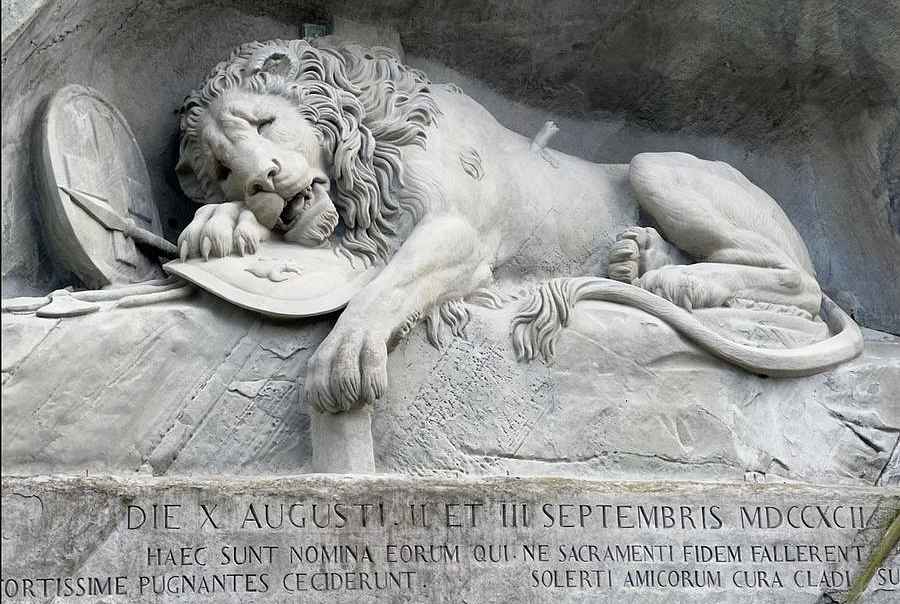
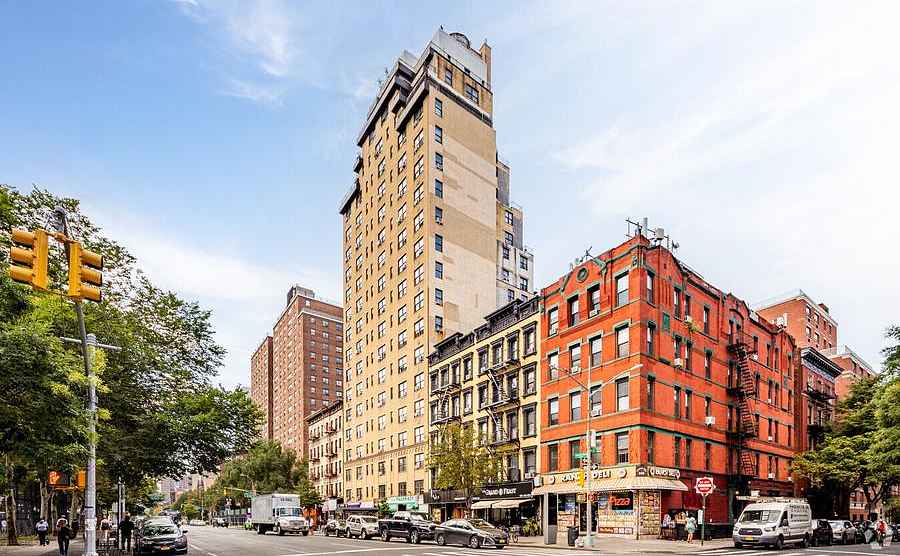
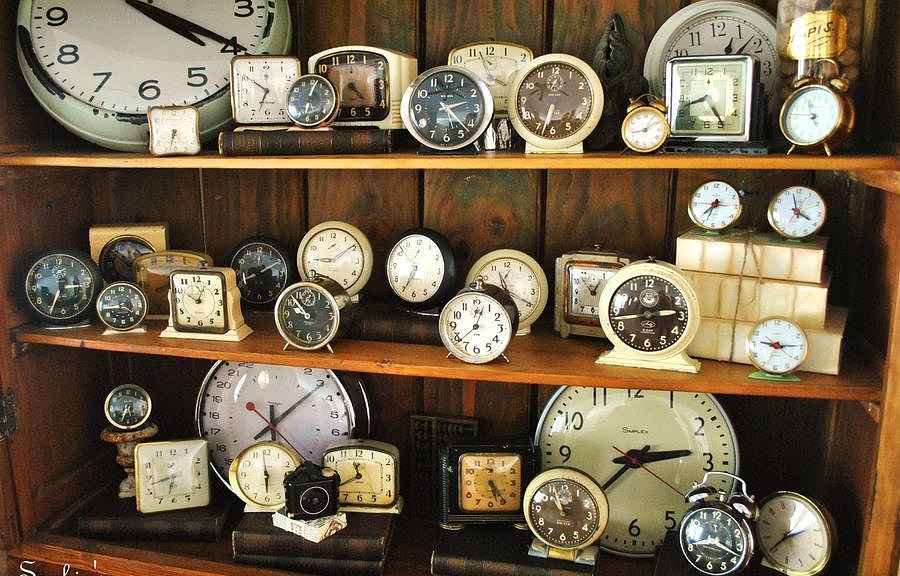
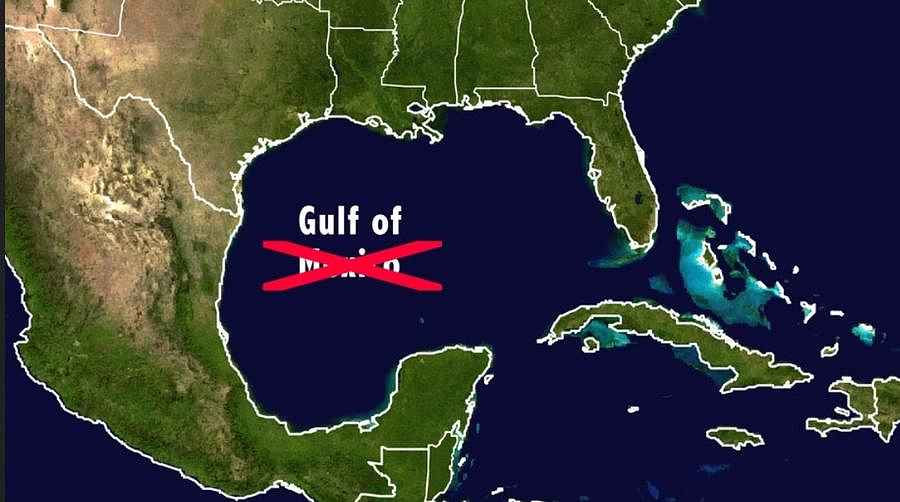
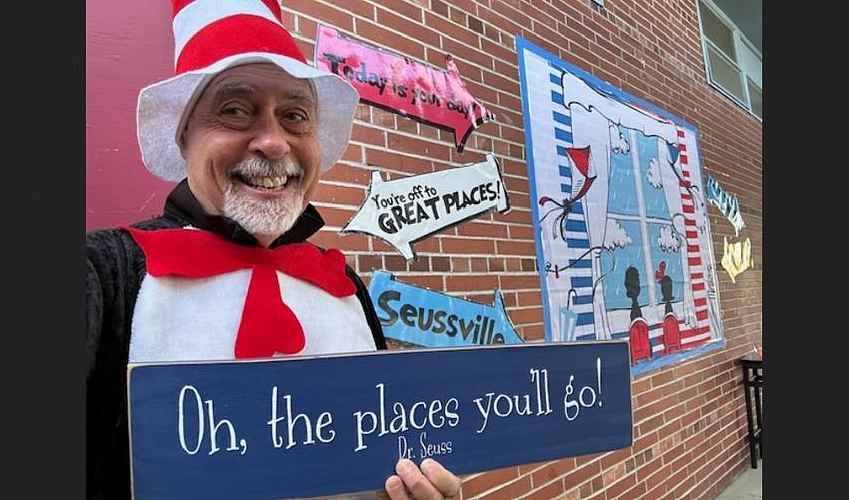
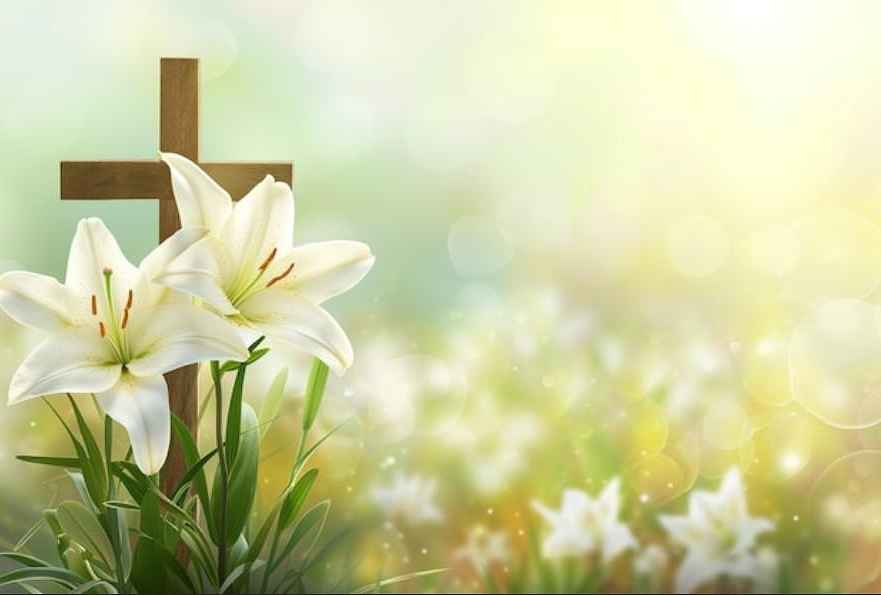
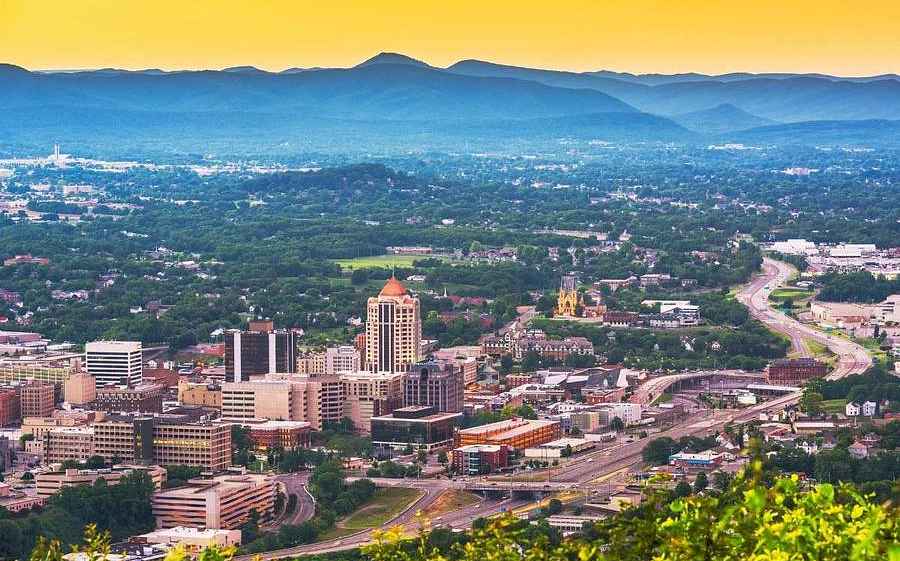
See listing of Recent and Most Popular articles on the Home Page
My World
Category: News & Current Events / Topics: Compassion • COVID-19 • Crime, Justice, Punishment • Current Events, News • Dying and Death • Faith • News • Racism and Inequality • Social Issues • Social Unrest, Division
The Whole World is Watching . . . Again
by Stu Johnson
Posted: June 5, 2020
Will the response to George Floyd's death be a game-changer?…
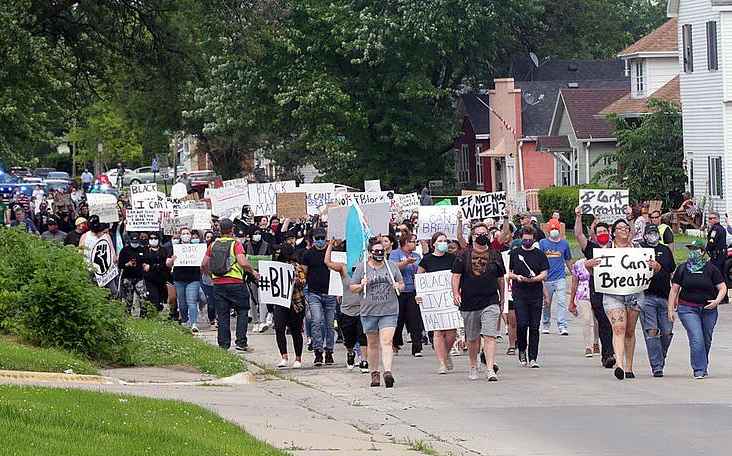
newstrib.com |
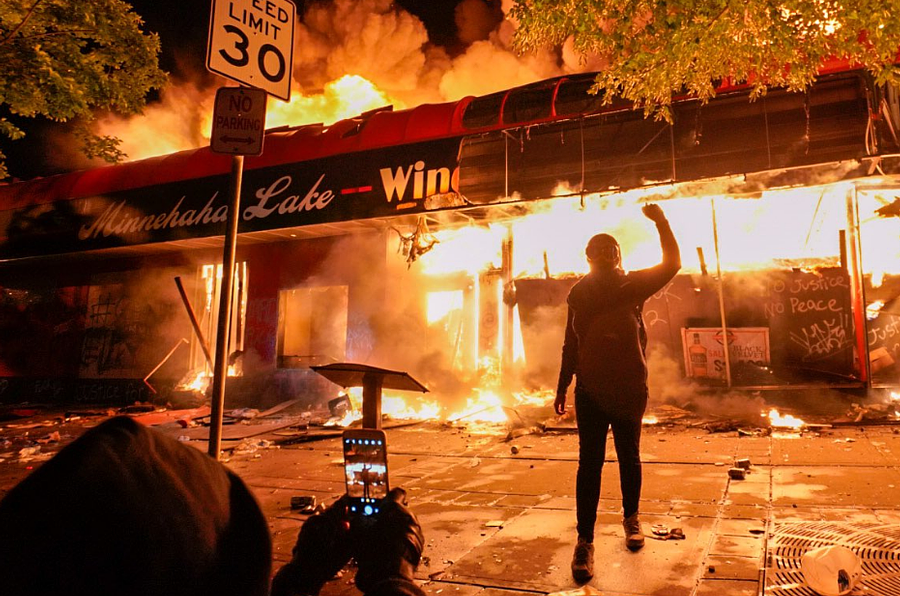
kfgo.com |
Wheels within wheels. A pandemic within a pandemic.
We were already in the midst of a global pandemic, on the verge of being able to start "reopening." Then, the news spread like wildfire that another black man was dead at the hands of police, this time in Minneapolis. The event set off a pandemic within a pandemic. . . and a flood of memories for many of us. (By pandemic, I am referring to the way the reaction to events in Minneapolis spread so quickly to other cities in the U.S. and around the world—like COVID-19, it literally "went viral").
The Whole World is Watching: Memories of the Summers of Rage
It was during my freshman year in college, in November 1963, that president John F. Kennedy was assassinated in Dallas. How would any of us know what the rest of that decade would bring?
During my college years, I had the opportunity to work as a "summer relief" camera operator at the local NBC station in Chicago. As I was leaving the Merchandise Mart one evening in 1967, approaching the building for an interview at Channel 5 was Dr. Martin Luther King, Jr. and a small entourage of aides and civil rights leaders. Racial tensions were already rising before King brought his message of nonviolence to Chicago, but by summer's end tensions had exploded, resulting in the destruction of vast swaths of Chicago, Detroit and other cities. One evening during our dinner break I was able to go out on the roof of the Merchandise Mart, where plumes of smoke from multiple fires on the city's west side turned an otherwise beautiful sunset into an apocalyptic scene.
After marriage and a year in Champaign-Urbana to pursue a master's degree at the University of Illinois, we were back in the Chicago area. During that year away, America was shocked by the assassinations of Martin Luther King, Jr. and Robert Kennedy, a rising tide of protest over the Vietnam War, and the beginnings of sweeping cultural change. The Democratic convention was being held while protest groups gathered to voice their opposition to war, racism and the status quo. The Sunday evening before the convention began, we were in Grant Park, a favorite spot, which was just as quiet and pleasant as ever. The protesters were camped out miles away in Lincoln Park.
The next night we saw on television an unimaginable scene at the very corner that had been so peaceful the night before. It was now filled with violent confrontations between protesters, police and National Guard. This was a television event; the scene a template for many more to come, including much of what we have witnessed this week. The technology was still somewhat primitive compared to where we are now—no cable news, no social media, none of the instant technology available today—but it introduced the phrase "the whole world is watching."
There have been many other events in the intervening half-century, too many in the pattern of George Floyd's death. In the realm of racial relations, they are all linked by the fact that the whole world is still watching and waiting for lasting change.
Ghosts from the past: Los Angeles 1992
What incites the recurring images of protest and violence in the media may vary, but the images are similar. And, just like the reactions we are seeing today, the efforts for peaceful exorcise of First Amendment rights to assemble and express deep grievances can be hijacked by other groups who wantonly or opportunistically engage in destruction, violence and looting.
During the stay-at-home time in Illinois during COVID-19, our local library has been closed, so I reached to my own bookshelf. How ironic that I would pick up Charles Colson's A Dance with Deception, his 1993 compilation of the radio commentary series "BreakPoint." Colson is known as the tough-as-nails political operative in the Richard Nixon administration, who ended up in prison in the fallout of the Watergate scandal. While in prison, he had a religious conversion experience, described in his earlier book Born Again, and went on to found Prison Fellowship, becoming a spokesman, advocate and activist in social reform.
As protests and violence broke out in cities across America and then spread globally in the last two weeks, I found myself in the chapter "Justice for All." The BreakPoint commentary of May 12, 1992 was especially noteworthy, raising the question, "can it finally be different this time . . . can this be a game-changer for American society?"
The smoke has cleared over the skies of Los Angeles, but the political fires will burn for a long time to come as policy makers debate the cause of the riots and ways to prevent their return.
The riots may have started with the Rodney King case, but they quickly grew into much more than that. The looting and murder we watched on our television screens was the result of unfettered human depravity—what the Bible calls sin. One black shopkeeper, surveying the looters' wreckage, said, "This has nothing to do with Rodney King." This has to do with greed."
That's a more honest assessment than we're likely to hear on the evening news.
Every political order rests on a moral consensus. In order to live as a community, we must all accept certain objective principles—obligations that transcend our personal desires—such as respect for the property of others. Without that moral order, there's little government can do to maintain civil order.
This is the real lesson of Los Angeles: that a democratic government cannot be sustained unless its citizens first practice self-government. When they give in to their impulses, the law of the jungle takes over.
And that can happen anywhere, not just in the inner city. Looting is looting—whether it's done by gang members in T-shirts or by white-collar bankers in three-piece suits. We saw it in the savings-and-loan fiasco, which is still being sorted out. Instead of smashing windows in the ghettos, these men were quietly writing figures in a ledger book. But the moral content of their act was exactly the same: By dipping into other people's savings, they were just as culpable as the looters in Los Angeles who robbed their neighbor's shops.
Take away the restraints of conscience, and people grab whatever they can.
The riots in Los Angeles reveal in microcosm what can happen anywhere in America when the moral consensus that holds a free society together breaks down. And that moral conscience depends in turn on a strong religious faith.
Our Founders understood this. Two hundred years ago, John Adams said, "Our constitution was made only for a moral and religious people. It is wholly inadequate for the governance of any other."
And historians WIll and Ariel Durant, after studying two thousand years of Western civilization, concluded, "there is no significant example in history . . . of a society successfully maintaining moral life without the aid of religion."
I wish we all had heard one of the black residents of Los Angeles interviews on television. He gestured toward the looters storming the shops and cried out, "This is stealing. Don't these people have any morals? Don't they believe in God?"
Those simple questions hit right at the heart of the issue. As our nation turns away from God, we are losing the only sure basis of moral order in society—an order that applies to all people, black or white, in ghetto neighborhoods or in corporate boardrooms.
It's good to see the smoke clearing over Los Angeles and to hear the sound of hammers rebuilding the stores and businesses. But unless we work just as hard to rebuild the bonds of out moral consensus, those walls will surely tumble down again.
Not in in Los Angeles by across the rest of America as well
The road ahead
One difference between the George Floyd protests and previous events has been that peaceful protests have continued day after day, while nighttime violence and looting have diminished, largely because of extending and enforcing curfews. This has given opportunity to see that the two faces of response to Floyd's death are not necessarily connected. Earlier this week, we were hearing more of the daytime protesters complain about their concerns being hijacked by the looters. Perhaps now the persistent and diverse voices for change are making an impact.
While there have been concerns about a spike in COVID-19 infections because of the crowds, could it be that what appears to be a longer-lasting impact this time around was fostered by the response to the virus in the first place? With cities and businesses virtually shut down, streets were empty, with no sense of the normal pattern of weekly life, making it easier for more people to stay engaged, more to join.
Only time will tell what the response to this pandemic within a pandemic will be. There will be much discussion, advocacy, political engagement. The potential responses could bring us together through reconciliation, repentance, renewal, resolve or drive us further apart through retribution, revenge, retaliation, recrimination.
The American Declaration of Independence of 1776 contains this familiar phrase:
We hold these truths to be self-evident, that all men are created equal, that they are endowed by their Creator with certain unalienable Rights, that among these are Life, Liberty and the pursuit of Happiness.
The rights proclaimed represent the sanctity of human life, freedom, and opportunity. They are also transcendent, God-given. Yet today we have become a highly materialistic, self-centered, and naturalistic culture. Can such Rights be understood as a national creed in an atmosphere where rights too often translate into entitlements, things I am owed by society, through or enforced by government, in order to create equality measured by data points rather than a truly common sense of our humanity?
At the memorial service for George Floyd in Minneapolis yesterday, Al Sharpton said that the "knee" of oppression has been on blacks in America for 401 years—slavery began in the American colonies in 1619. Indeed, slavery would stand as America's "original sin," and continues to this day as persistent racism. So contentious was the issue after the Revolution was won that it delayed and forced compromises in the adoption of the Constitution in 1787, while setting the stage for the Civil War just seven decades later. So, do those grand words in the Declaration represent a lie, high-minded hype, or can they still, after nearly 250 years represent a vision, a mission statement, the North Star pointing to what America can still become?
A counterpoint to Al Sharpton's comments at the memorial yesterday came today in an interview I heard with conservative black commentator Shelby Steel, a Fellow at the Hoover Institute at Standford University. He felt that Sharpton and others need to turn from promoting victim-hood and suggesting what African-Americans should do to inspire their communities, to shape their own future and further, to address the issue of the disintegration of the black family. Steel has experienced reverse racism from other blacks, as has Supreme Court Justice Clarence Thomas, because of his conservative views.
My point in including the previous paragraph is one that I apply in many situations: we do not live in a world of binary choices, (either/or, this over that), but most often a more nuanced combination (both/and, all of the above, some of this and some of that, or throw in something that no one has mentioned, "thinking outside the box"). Restricting options and participants can lead to group think, where the culture of decision making becomes so narrow that consequences or alternative solutions are completely missed.
As a society, we approach solutions from a wide variety of life experiences and see the world through different eyes, different world views. Many solutions that will be sought will come in the form of legislation, policy changes, government action. While those may be important components, the real solution is changed hearts—adopting those words from the Declaration of Independence as a personal, communal, and national creed.
For people of faith, one approach to the immediate reaction to George Floyd's death and the desire to seek a longer-term quest to defuse racism in America is represented by the "June 8 Call to Lament, Fasting, and Prayer," with the following perspective:
Genesis 1:27 declares God created man in His own image. As bearers of God’s image, all people share in divine dignity and are equal before Him. Racism is an abomination to God. It distorts, diminishes, defames, and destroys those whom God in His goodness created in His image.
As a companion to this approach, the pastor of our church suggested an April 2019 article by Mark Vroegop, "Dare to Hope in God: How to Lament Well.
This is only one small response, but it represents one candle that, combined with thousands of other efforts by people who resolve to find better and lasting change, could result in a bonfire celebrating progress, suppressing the fires of rage and destruction.
We will only know when we look at ourselves in three months, three years, or three decades whether the response to the death of George Floyd in 2020, occurring when the world was already beaten down by COVID-19, was a game-changer.
Search all articles by Stu Johnson
Stu Johnson is principal of Stuart Johnson & Associates, a communications consultancy in Wheaton, Illinois. He is publisher and editor of SeniorLifestyle, writes the InfoMatters blog on his own website and contributes articles for SeniorLifestyle. • Author bio (website*) • E-mail the author (moc.setaicossajs@uts*) • Author's website (personal or primary**)* For web-based email, you may need to copy and paste the address yourself.
** opens in a new tab or window. Close it to return here.
Posted: June 5, 2020 Accessed 264 times
![]() Go to the list of most recent My World Articles
Go to the list of most recent My World Articles
![]() Search My World (You can expand the search to the entire site)
Search My World (You can expand the search to the entire site)
![]() Go to the list of Most Recent and Most Popular Articles across the site (Home Page)
Go to the list of Most Recent and Most Popular Articles across the site (Home Page)
 Loading requested view...
Loading requested view...